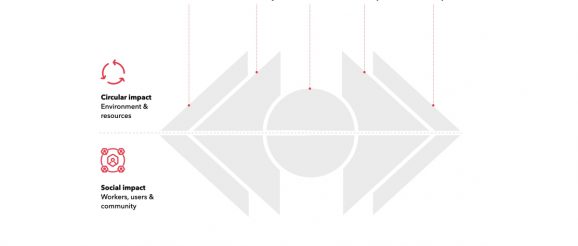Bringing social impact into circular economy – Board of Innovation

As an example of child labour, in India alone, over 40,000 children, between the ages 10 to 14, are employed in recycling facilities.
So how do we address the negative social impact of the circular economy?
Social challenges are relevant for circular businesses, as tackling them can increase impact and visibility. Incorporating social practices is also an opportunity to improve your brand awareness and to differentiate yourself, not only as a circular, but also a social circular business.
Circular supply chains represent a change in how we do business, and many new and old stakeholders are involved. Making sure to take care of the unintended consequences on these stakeholders strengthens your social vision and position as a company engaged with the future.
Sustainable and reusable products need to keep the consumers’ health, security and overall affordability in mind. One interesting case is hazardous plastics in recycled toys or food packaging. Despite the many regulations in place for the use of these materials, toxic chemical components used in the plastic production could remain in waste streams and therefore in recycled materials.
Substances like PBDD/Fs, that have not been officially assigned as toxic factors by the WHO, might put users at risk when reusing plastics with these chemicals. A recent study by UN Environment recognised that “contaminated plastic toys [with re-used plastic containing PBDD/Fs] may significantly contribute to the total dioxin daily intake of young children.”
Only in the EU, the exposure to endocrine-disrupting chemicals in consumer products, with reused materials, had health and economic costs of more than €150 billion per year. The European Environmental Bureau has called toxic recycling, “the main obstacle to the circular economy”.
